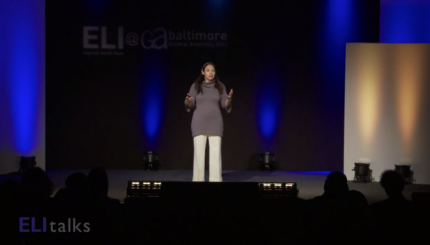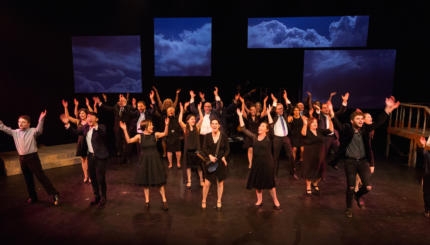Plot was the last thing on my mind when I sat down to make a novel out of the stories about Jews in Alberta that I’d written for A Night in Odessa. I didn’t want to capture a landscape or a moment; I was after a sound, the breathless, slightly strangulated blast of dissatisfaction and unsublimated pain that was the aural blanket in which I’d been swaddled. A jumble of demotic English and storm-tossed Yiddish that flowed in and out of each other with utter indifference, it was a world away from the quaint and cutesy Yinglish of satire and dialect jokes. This was the argot of thoroughly bilingual people who knew that they were never at home.
I was damned if I was going to let it disappear, so I made it the book’s setting, its subject and leading character. The people in the book might live in Alberta, but the space inside the walls of this non-Phil Spector sound is its real locus. I wasn’t terribly interested in foreign accents or mangled syntax; I wanted to portray a way of thinking that didn’t want to squeeze into the patterns of proper English any more than it had wanted to fit those of the German from which Yiddish arose in the first place. I was a huge fan of Ishmael Reed’s early novels, especially The Free-Lance Pallbearers and
Yellow Back Radio Broke-Down
, both of them tours-de-force of African-American English, and I wanted to do something similar with the non-standard English that I was supposed to have been educated out of. It was the next best thing to writing Yiddish.
I wanted to talk about people who were using Yiddish in places where they weren’t supposed to be, post-War lower middle- and working-class people living thousands of miles from anything that could called a major Jewish community, and—in the case of the protagonist and his family—retaining their commitment to Orthodoxy. Anyone who has spent ten minutes as an Orthodox Jew knows that it’s a twenty-four hour a day job, and I wanted to show people of unshakable Orthodoxy trying to make their way in a world in which Jewish law is a joke to everyone else—and doing almost nothing about it. I was aiming for an anti—bildungsroman. If people change, it’s because they’ve aged, but no one learns a thing.
I should have learned something from the storyteller who disapproved so strongly of the original sketch. While non-Jews seemed to like the stuff no less than the Orthodox Jews who got all the jokes, a surprising number of people who don’t keep shabbes or worry about kashrus found it offensive: “Religious people don’t behave that way.” Thirty years of klezmer bands and increasing interest in all aspects of Yiddish culture (not to mention recent scandals in the Orthodox community and the popularity of off-the-derekh memoirs) have gone a fair way to familiarize the general reader, Jewish and non-, with ritual behavior so deeply ingrained that it can be practiced in circumstances that would seem to make it absurd. When a teenage boy sends his Jewish girlfriend to the mikveh, it isn’t offensive, it’s merely consistent.
The Visiting Scribes series was produced by the Jewish Book Council‘s blog, The Prosen People.
The Jewish world is full of debates. Get the latest in MyJewishLearning’s weekly blogs newsletter.


